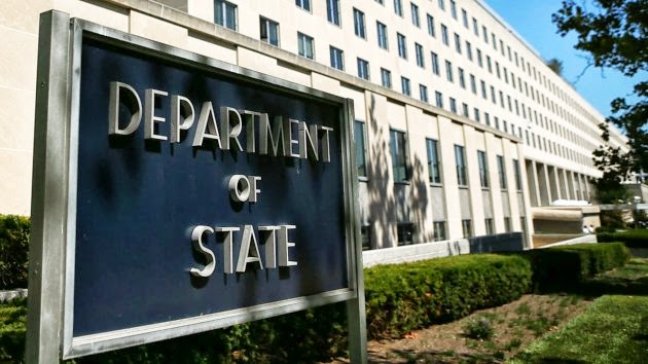
The US Department of State published the 2022 report on investment climate in different countries, among them in Georgia.
According to the report, the country has made sweeping economic reforms since 1991 that have produced a relatively well-functioning and stable market economy. “Business and investment conditions are sound, and Georgia favorably compares to the regional peers,” reads the document.
“Georgia, located at the crossroads of Western Asia and Eastern Europe, is a small but open market that derives benefits from international trade, tourism, and transportation. While it is susceptible to global and regional shocks, the country has made sweeping economic reforms since 1991 that have produced a relatively well-functioning and stable market economy. Average growth rate was over five percent from 2005 through 2019, and its rankings improved impressively in global business, governance, corruption, and other indexes.
Georgia ranked twenty sixth in the Heritage Foundations’ 2022 Economic Freedom Index, and 45th in Transparency International’s Corruption Perception Index. Fiscal and monetary policy are focused on low deficits, low inflation, and a floating real exchange rate, although the latter was affected by regional developments, including sanctions on Russia and other external factors, such as a stronger U.S. Dollar.
The COVID-19 pandemic reversed some of the past gains and placed significant pressure on the domestic currency and local economy. Georgia’s economy contracted six percent in 2020 with particularly steep losses in the tourism sector. Although Georgia successfully managed the first wave of COVID-19 pandemic, the infection rate surged in the second part of 2021, compelling the government to adopt a series of restrictions and shut-downs that negatively impacted economic activity. Despite this, Georgia’ economy picked up in 2021, demonstrating strong growth, 10.4 percent higher than 2020. While government and international financial partners forecasted an optimistic outlook for 2022, the economic impacts of the Russia-Ukraine war and sanctions on Russia have damaged growth prospects and led to lower growth expectations.
Overall, business and investment conditions are sound, and Georgia favorably compares to the regional peers. However, there is an increasing lack of confidence in the judicial sector’s ability to adjudicate commercial cases independently or in a timely, competent manner, with some business dispute cases languishing in the court system for years. Other companies complain of inefficient decision-making processes at the municipal level, shortcomings in the enforcement of intellectual property rights, lack of effective anti-trust policies, accusations of political meddling, selective enforcement of laws and regulations, including commercial laws, and difficulties resolving disputes over property rights. The Georgian government continues to work to address these issues, and despite these remaining challenges, Georgia ranks high in the region as a good place to do business.
The United States and Georgia work to increase bilateral trade and investment through a High-Level Dialogue on Trade and Investment and through the U.S.-Georgia Strategic Partnership Commission’s Economic, Energy, and Trade Working Group. Both countries signed a Bilateral Investment Treaty in 1994, and Georgia is eligible to export many products duty-free to the United States under the Generalized System of Preferences program.
Georgia suffered considerable instability in the immediate post-Soviet period. After regaining independence in 1991, civil war and separatist conflicts flared up along the Russian border in the Georgian territories of Abkhazia and South Ossetia. In August 2008, tensions in the region of South Ossetia culminated in a brief war between Russia and Georgia. Russia invaded and occupied the Georgian territories of Abkhazia and South Ossetia. Russia continues to occupy these Georgian regions, and the central government in Tbilisi does not have effective control over these areas. The United States supports Georgia’s sovereignty and territorial integrity within its internationally recognized borders and does not recognize the Abkhazia and South Ossetia regions of Georgia as independent. Tensions still exist both inside the occupied territories and near the administrative boundary lines, but other parts of Georgia, including Tbilisi, are not directly affected.
Transit and logistics are priority sectors as Georgia seeks to benefit from increased East/West trade through the country. The Baku-Tbilisi-Kars railroad has boosted Georgia’s transit prospects and the government has looked for ways to enhance trade. In 2016, the government awarded the contract to build a new port in Anaklia to a group of international investors, including a U.S. company. However, in 2020 the government terminated its contract with the group, resulting in a legal dispute with the investor. While the government has stated its commitment to the construction of the Anaklia Deep Sea Port Project, a tender has not yet been announced.
Separately, logistics and port management companies in Poti and Batumi have started to develop and expand the Batumi and Poti Ports. In 2020, the owner of Georgia’s largest port, Poti Port on the Black Sea, announced its plans to create a deep-water port. In 2021, logistics companies completed two new terminal projects in Batumi and Poti ports,” the report says.





